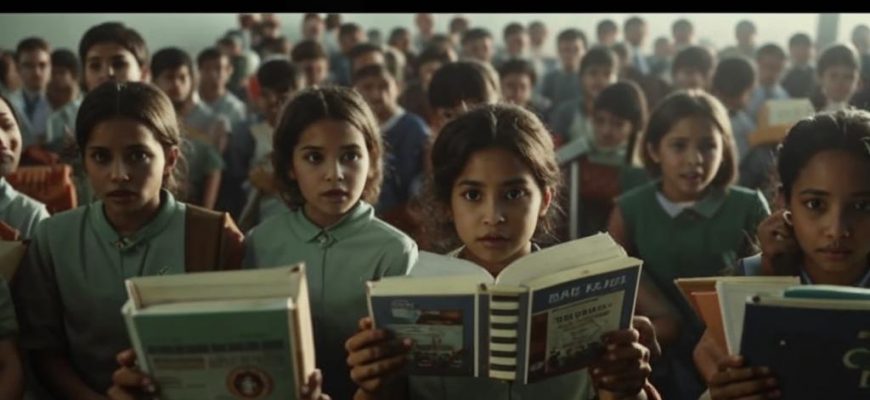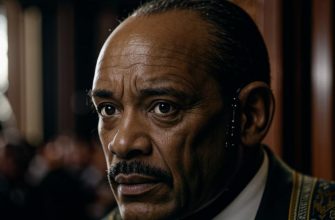Illiteracy, the inability to read or write, is a theme explored by various films across different cultures and contexts. These stories often delve into the struggles, stigmatization, and societal impacts associated with illiteracy, offering viewers a poignant look at the challenges faced by individuals who navigate a world built on written communication. Films about illiteracy explore themes of empowerment, education, personal growth, and the transformative power of literacy. They also often critique societal structures that perpetuate inequality and highlight the importance of access to education for all. Here are several films that tackle the subject of illiteracy with sensitivity, insight, and creativity:
“Taare Zameen Par”, 2007
Director: Aamir Khan, Amole Gupte

While primarily about dyslexia, this Indian film also touches upon themes of educational challenges and the broader implications of not fitting into a conventional learning system. It tells the story of a young boy whose difficulties in school are misunderstood until an art teacher discovers his struggles and helps him learn in his own way.
Starring: Darsheel Safary, Aamir Khan, Tisca Chopra, Vipin Sharma, Sachet Engineer, Tanay Chheda, Lalitha Lajmi, Girija Oak, Ravi Khanvilkar, Pratima Kulkarni;
Production year: 2007;
Genre: drama, family;
MPAA rating: pg;
Duration: 162 min.;
Rating: IMDB: 8,3;
More information about the film “Taare Zameen Par” on the website imdb.com
“The First Grader”, 2010
Director: Justin Chadwick

Based on a true story, this film focuses on an 84-year-old Kenyan villager and ex Mau Mau freedom fighter who fights for his right to attend school for the first time to get the education he could never afford. It's a heartwarming story about determination, the right to education, and the power of literacy at any age.
Starring: Naomie Harris, Oliver Litondo, Tony Kgoroge, Alfred Munyua, Shoki Mokgapa, Vusi Kunene, Kamau Mbaya, Emily Njoki, Lwanda Jawar, Dan «Churchill» Ndambuki;
Production year: 2010;
Genre: drama, melodrama, biography;
MPAA rating: pg13;
Duration: 103 min.;
Rating: IMDB: 7,4;
More information about the film “The First Grader” on the website imdb.com
“Iqbal”, 2005
Director: Nagesh Kukunoor

Though primarily a sports drama about a deaf and mute boy aspiring to be a cricketer, “Iqbal” also features themes of learning and literacy, especially in communication and overcoming barriers to achieve one's dreams. The protagonist's journey is symbolic of breaking free from the limitations placed by society, including those related to education and literacy.
Starring: Shreyas Talpade, Naseeruddin Shah, Shweta Basu Prasad, Yatin Karyekar, Prateeksha Lonkar, Girish Karnad, Dilip Salgaonkar, Jyoti Joshi, Aadarsh Balakrishna, Gururaj Manepalli, Rajita Joshi, Srikanth Chitrao, Vikram Inamdar, Elahe Hiptoola, Balaji Manohar, D. Santosh, Vibhu Kashyap, K. Sridhar, T.P. Varun, Rohit Bharadwaj, Nitin Tangaraj, Chaitanya, Koti Babu, G. Avinash, Sridhar, Kapil Dev;
Production year: 2005;
Genre: drama, sport;
Duration: 132 min.;
Rating: IMDB: 8,1;
More information about the film “Iqbal” on the website imdb.com
“Alphabet”, 2013
Director: Erwin Wagenhofer

This documentary confronts the modern educational system around the world, critiquing its focus on competition and success rather than creativity and play. While not about illiteracy in the traditional sense, it addresses the broader concept of 'cultural illiteracy' where children lose their natural love for learning, which can lead to an inability to engage meaningfully with the world.
Starring: Sir Ken Robinson Ph.D., Yang Dongping, Andreas Schleicher, Qu Pei, Bai Jia Ye, Gerald Hüther, Arno Stern, Michèle Stern, Yakamoz Karakurt, Thomas Sattelberger, Patrick Kuhn, Kiley Hamlin, Janine Gellerman, André Stern, Pauline Stern, Antonin Stern, Pablo Pineda;
Production year: 2013;
Genre: documentary;
Duration: 113 min.;
Rating: IMDB: 7,4;
More information about the film “Alphabet” on the website imdb.com
These films, each in their unique way, shed light on the struggles and triumphs associated with leraning to read and write, and the profound impact literacy can have on an individual's life and the broader society.
Concluding, films about illiteracy carry a profound social message, echoing the struggles and resilience of individuals grappling with the written word in a literate world. Through their narratives, they unravel not only the personal angst and challenges faced by the illiterate but also cast a broader light on societal inequities and the transformative power of education. These films, by bringing raw and often overlooked stories to the forefront, not only entertain but serve as crucial catalysts for discourse and change. They inspire empathy and understanding, urging audiences towards greater societal introspection and action. As such, they stand as vital cultural artifacts that underscore the importance of literacy, advocate for inclusive education, and affirm the human spirit's capacity to overcome, learn, and thrive.









